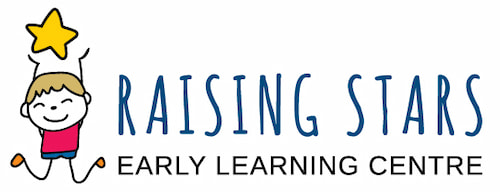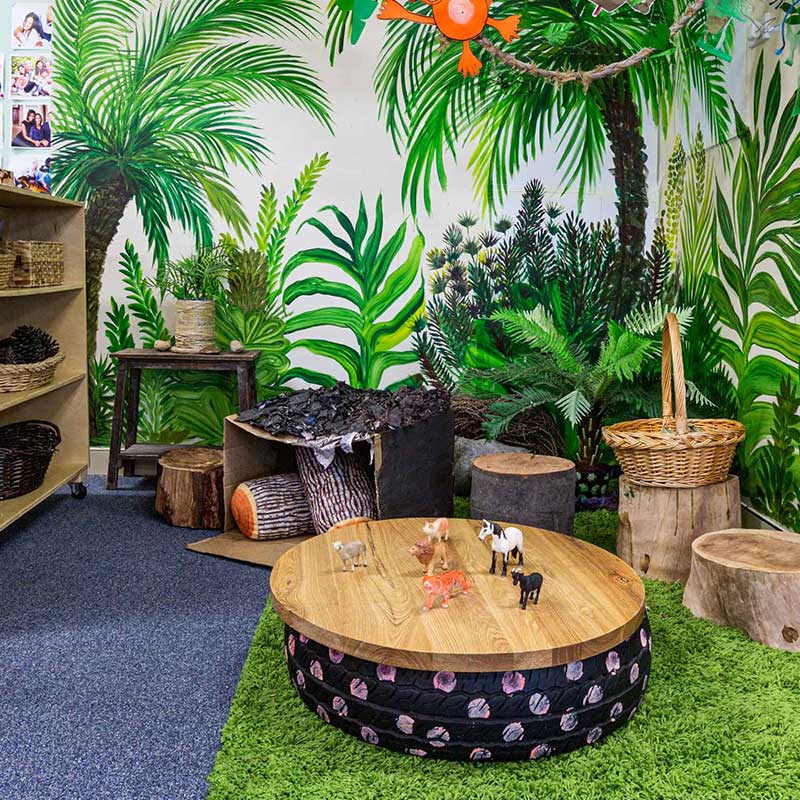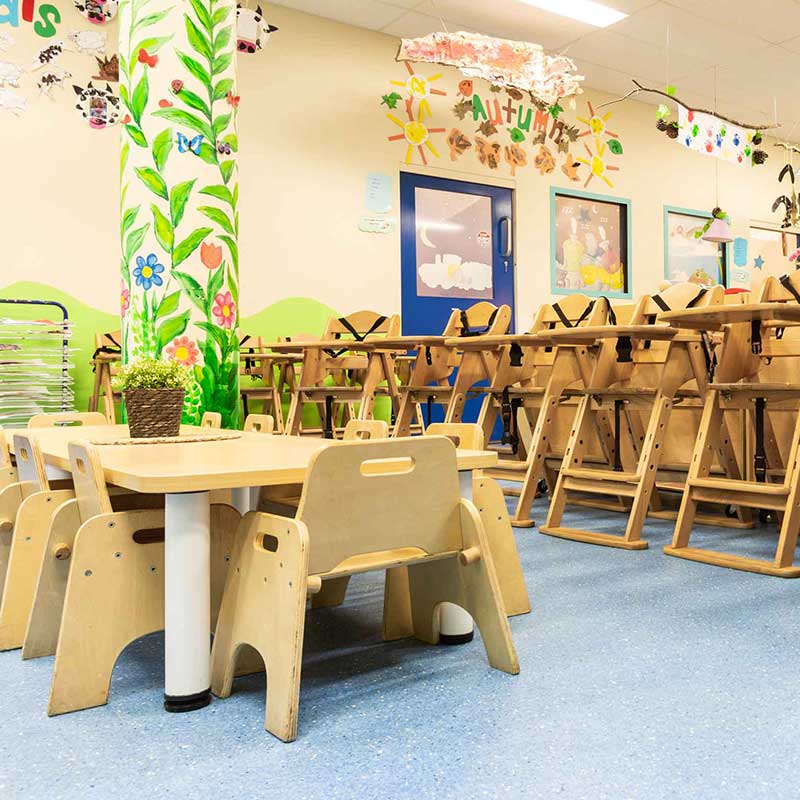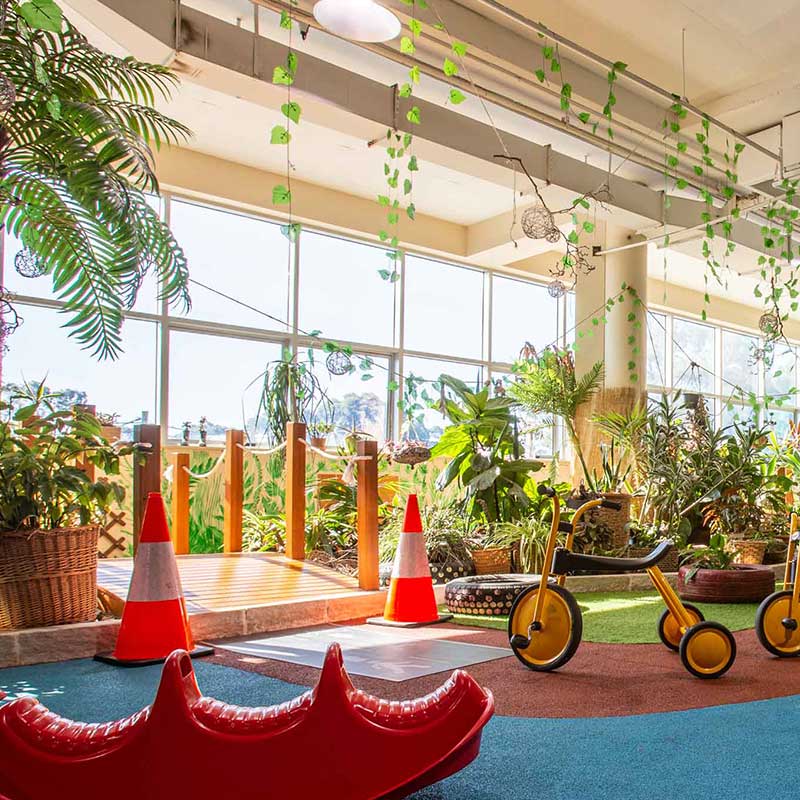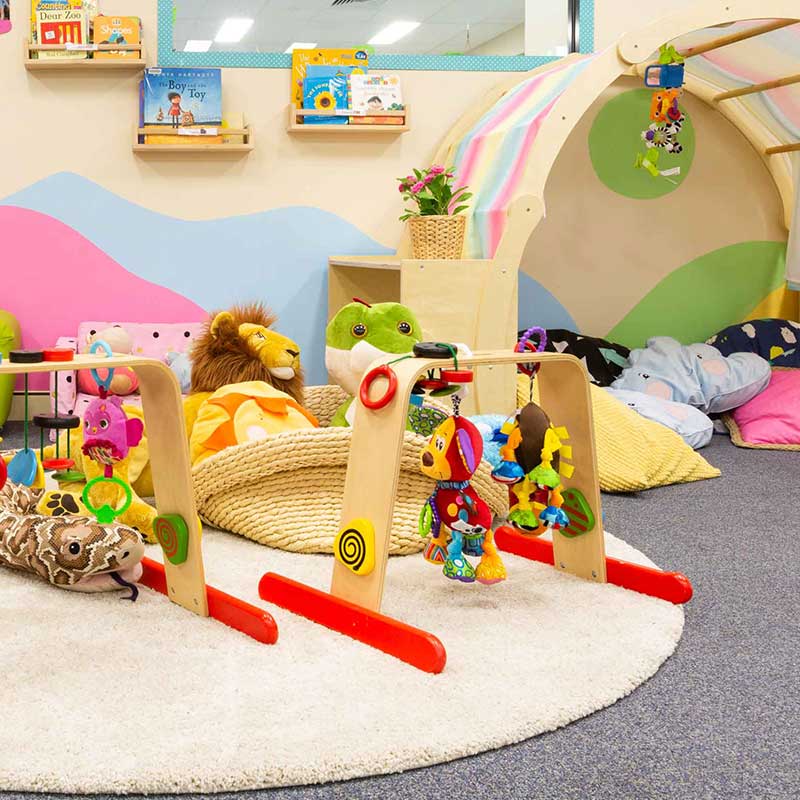Our Childcare Curriculum
Through our curriculum plan, we aim to support children in a secure environment through their emotional, intellectual, physical activity, and social needs. Children’s lives are shaped by their earliest experiences. Our focus on a holistic approach to well being and learning assists as educators prepare children for big school, involvement in the local community, and beyond.
An Educational Approach that Includes School Readiness and the EYLF
A well-rounded educational approach to a child’s education encompasses a range of methods to implement within an early learning environment for young children. These methods can include both theoretical and practical learnings, such as intellectual learning as well as an integrated play-based learning approach with sensory play, imaginative learning, creative problem solving, and physical exercise (in forms such as soccer and Yoga).
These different methods cater to various learning styles of the mix of children in the classroom curriculum plan with foundations for our early childhood curriculum based on the Early Years Learning Framework. The curriculum plan achieves the EYLF five learning outcomes so that children both learn at their own pace while progressing necessarily.
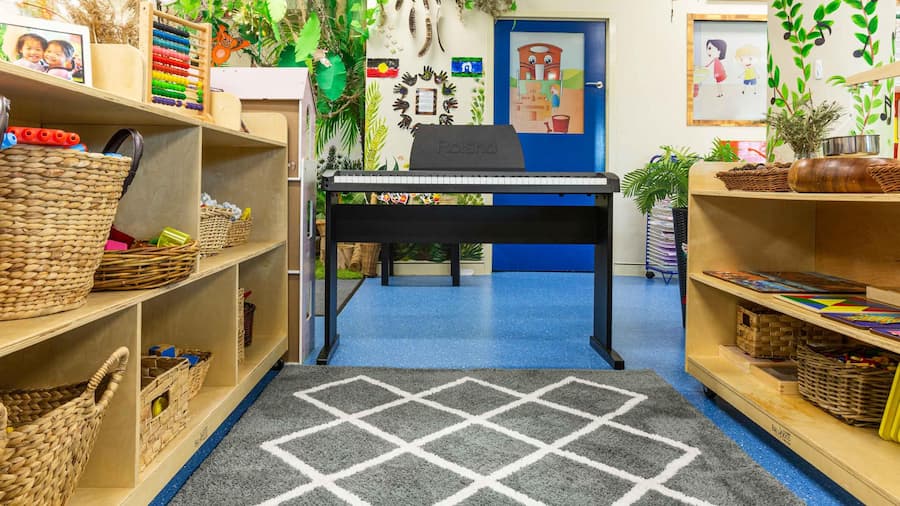
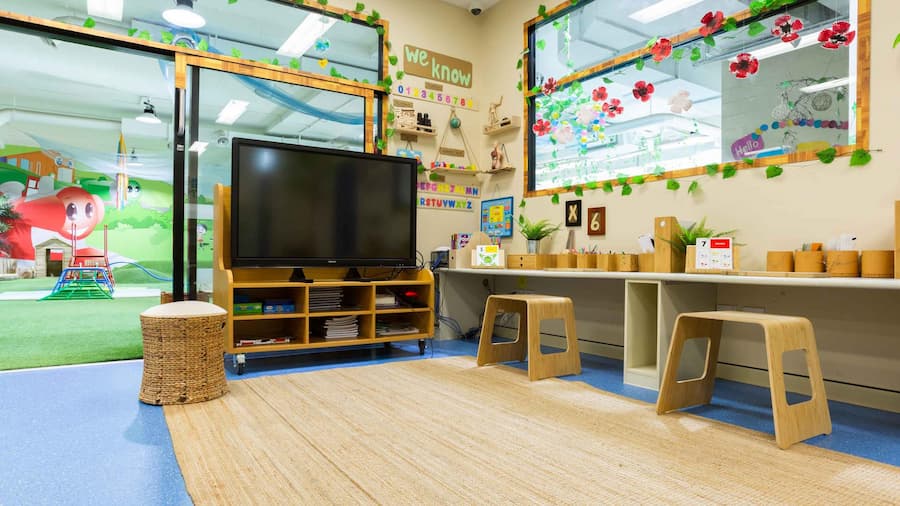
School Readiness
The school readiness curriculum program aims for children to have a smooth transition into kindergarten. School readiness is not only about their early literacy and numeracy skills, but also their interpersonal skills, emotional development, physical coordination, and developing their personality so they shine.
The skills they learn and develop in their early childhood years are crucial for their ongoing development, especially for the life they will eventually lead beyond the classroom. Early education is of utmost importance for children to have a life long love for their ongoing development.
Our school readiness program considers all of the people important in children’s learning journey, from caregivers, early childhood teachers, parents, role models, and other family members.
An effective approach to school readiness should consider everyone involved within the early education system – from caregivers, teachers and early learning centre managers, to parents, role models, and other family members at home.
The Early Years Learning Framework (EYLF)
The Early Years Learning Framework (EYLF) is an Australian-wide initiative to introduce standardised learning across pre-kinder early learning centres. Based on the National Quality Framework, educators follow the EYLF program to ensure children can be educated and cared for in a supportive and nurturing environment.
The five learning outcomes of EYLF are:
- A strong sense of identity
- Connection to and contribution with their world
- A strong sense of wellbeing
- Confident and involved learners
- Effective communicators
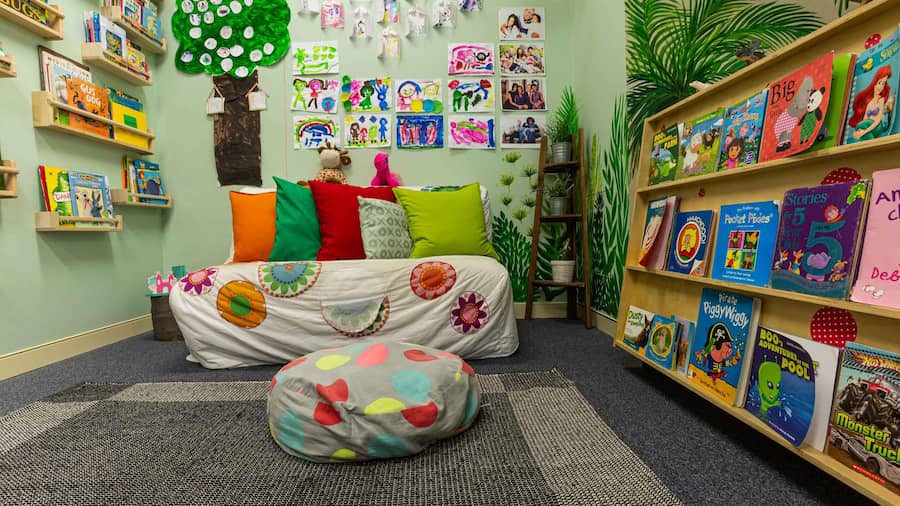
Our Child Care Program
At Raising Stars, our child care program encompasses all aspects of a well rounded early education, from creative subjects such as art and music, to learning languages like Italian and Mandarin.
Extra-Curricular Activities
Families can encourage extra-curricular activities outside of the preschool environment, based on the child’s interests they develop while in childcare centres.
Our curriculum plan is designed for children to explore their own interests and develop a sense of self, assisting them with engaging in a range of new activities they can enjoy.
Childcare Nutrition
Healthy eating is important for everyone, and young children especially.
It is vital for children to learn healthy eating habits, like consuming fruit and vegetables and drinking plenty of water.
Five nutritionally balanced meals are prepared fresh, onsite daily for the kids by qualified chefs. The menu is created in consultation with nutritional experts to ensure the daily nutritional requirements are being met. Children are provided with water and milk throughout the day, with no artificial drinks being served (i.e. cordial).
Our Learning Environment
Our learning environments encourage children to experience the world through social interactions, language, music, visual arts, play and education. Children receive comfort and support to embrace their individuality and develop their personalities.
All of the early childhood educators are trained to nurture each child’s development, in harmony with our sustainability program.
The sustainability program teaches children a sense of responsibility for how they interact and care for the environment.
Our Early Childhood Educators
At Raising Stars, our educators are qualified, experienced and passionate teachers with a love for early childhood education and care.
Our focus is always on providing the best love, support, attention and care, so that your child is in a loving and productive learning environment – one that feels like home.
Early Childhood Teaching Strategies
Our Early Childhood Teaching Strategies include the following:
- Play-Based Learning
- Inquiry-Based Learning
- Intentional teaching
- Explicit and Direct Instruction
- Event-Based Approach
- Project-Based Learning
- Blended Learning
Through the implementation of these strategies, a child’s learning can be developed with real-world experiences, with further support from families at home.
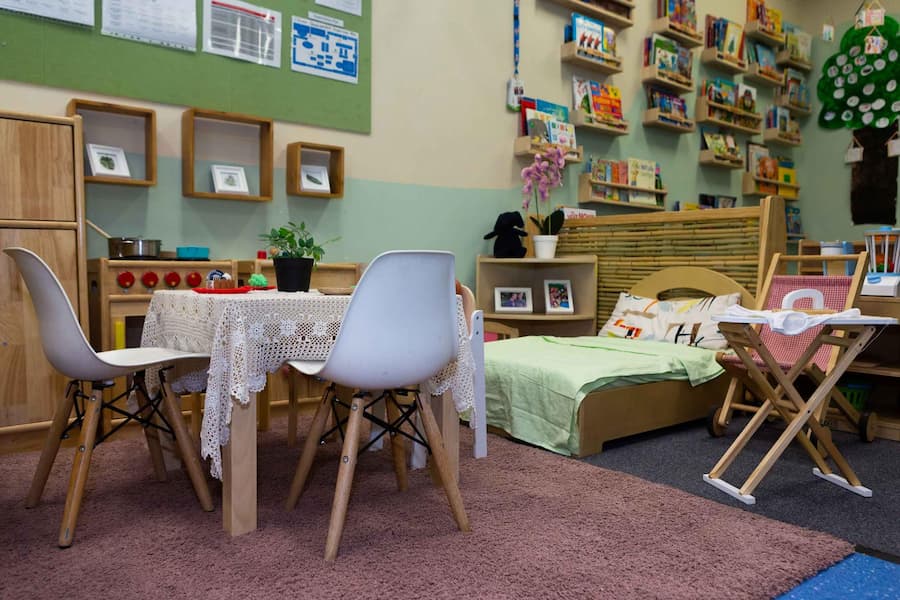
Play-Based Learning
Play-Based learning is crucial for children to use their imaginative skills, and have social development to interact positively with other children. This teaching strategy is best for the age groups in an early childhood setting because these children are already experiencing play – therefore incorporating learning through play assists them in understanding concepts more effectively.
Inquiry-Based Learning
Inquiry-Based learning assists with brain development and problem-solving in a more logical way, compared to play-based learning.
Intentional Teaching
Intentional teaching can focus on the different elements of the EYLF framework:
- Themes
- Principles
- Learning outcomes
- Practices
All learning and development are structured with the intention of fulfilling these requirements.
Explicit and Direct Instruction
Explicit and direct instruction refers to educators using clear communication to children, to assist them in achieving learning outcomes.
When educators use scaffolds, learning diagrams and charts, clearly explain and demonstrate concepts and expectations, then the child is well equipped with the instructions to master their task. If a child is struggling, educators may trial different instructions.
Event-Based Approach
An event-based approach to learning includes investigation, problem-solving and play. This learning helps children connect their knowledge with practice, equipping them for day-to-day real life in the big world.
Children are encouraged to play, plan, and enact events in real-life situations, drawing on their own knowledge and experiences. Educators can assist by initiating play based on a child’s interests, guide planning and rehearsal, promote the agency for a child to make their own decisions, and teach positive collaboration skills.
Project-Based Learning
Project-based learning is where children learn through engaging in real-world projects that have meaning and purpose. The aim is to promote a deeper learning experience, higher engagement with others and developing critical thinking skills.
When children are focused on completing a question or project for an extended period of time, this teaches them skills they will need as a part of school readiness.
Blended Learning
Blended learning incorporates a mixture of all approaches to learning. Depending on different factors like age, capabilities, interests, different children will learn in a way unique to them. Educators can determine the appropriateness of the various learning techniques and implement those effective for the children to suit their individual needs.
Learning and Child Development Theory
In conjunction with the Early Years Learning Framework provided by the Australian Government, our curriculum considers various learning and child development theories.
The following approaches and theories for learning and development have been drawn upon:
- The Reggio Emilia Approach
- Jerome Bruner’s Learning Theory
- Vygotsky’s Sociocultural Theory of Cognitive Development
- The Montessori Theory
- Piaget Theory
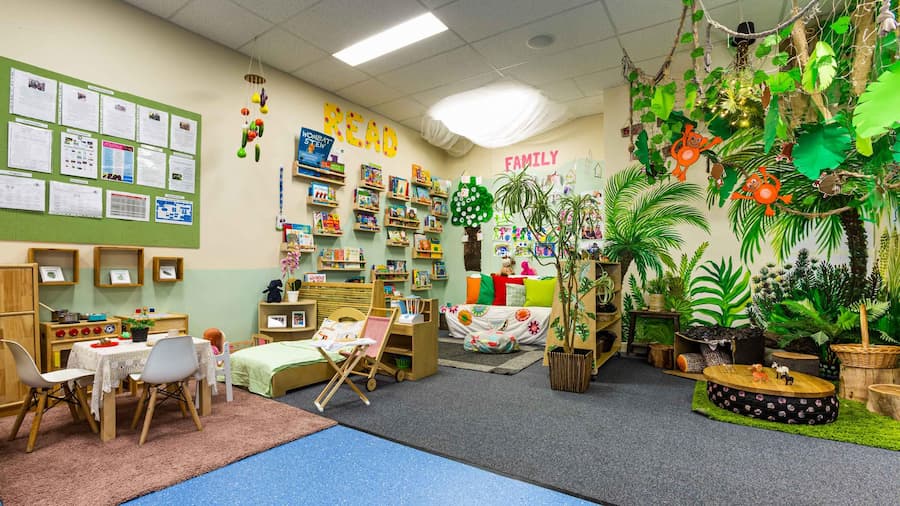
The Reggio Emilia Approach
The Reggio Emilia Approach is a philosophy (rather than a method) that acknowledges children learn in a number of ways, which they refer to as a ‘hundred different languages’. This philosophy is built on the foundations of a child-centric focus.
Children are encouraged to self-direct because educators believe in the capabilities of children to form their own personalities, as active participants in their own development. A child’s progress is not as easily evident with this approach, however, the results have been acclaimed.
Jerome Bruner’s Learning Theory
Jerome Bruner’s Learning Theory revolves around learners constructing their own knowledge through comprehension by the organisation and categorisation of information by a coding system.
This coding system should be discovered by the learner, rather than provided by the educator. This means rote learning is discouraged, and discovery learning is favoured instead. Educators can use Bruner’s spiral curriculum to aid discovery learning.
Vygotsky’s Sociocultural Theory of Cognitive Development
Lev Vygotsky believed that children developed their values, beliefs and problem-solving skills through social interaction and collaboration.
There is a strong emphasis on a child’s learning within community environments, and this supports Vygotsky’s approach to cognitive development. He advocated that the environment a child grows and learns in will greatly influence their cognitive development.
The Montessori Theory
The Montessori Theory is an experimental education program that is based on:
- Independence
- Observation
- Following the child
- Correcting the child
- Prepared environment
- Absorbent mind
It is a holistic approach to children’s learning that uses self-directedness, hands-on learning and collaborative exploration for early learners to engage with themselves, their environment, and the people around them.
Educators allow children to be independent and learn for themselves with less interruption as this hinders their developmental processes.
Piaget Theory
Unlike Vygotsky, Piaget’s focus was less on socialisation leading to learning, but rather on distinguishing the stages of development children move through. He valued language, morals, memory and reasoning.
These four stages of mental development according to Piaget are:
- Sensorimotor: Using real objects in playtime, connecting with the senses.
- Preoperational: Interaction with their environments including people, objects, books, games.
- Concrete operational: Science experiments, open-ended questioning, riddles for analytical thinking.
- Formal operational: Step-by-step organisation, charts, hypothetical questions, discuss wide-thinking concepts.
Learning Outcomes
The learning outcomes are based on the Early Years Learning Framework (EYLF). Through the blended learning approach, we aim for children to:
- Display independence
- Problem solve creatively
- Display school readiness
- Develop a sense of self-expression
- Establish social skills
- Display academic ability
- Engage positively with the community and other families
Childcare Curriculum Resources and Further Learning
Education NSW: Early Childhood Education
Education NSW: ECE and Learning From Home
Education NSW: Early Learning Curriculum
ACECQA: Child Centred Curriculum Planning
DESE: Australian Curriculum
